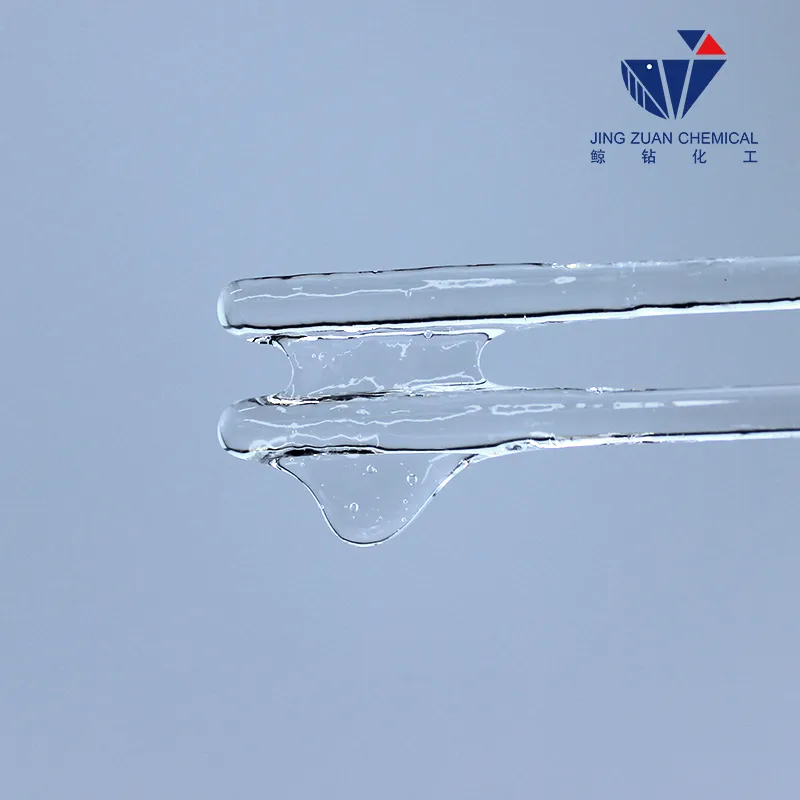
Dec . 12, 2024 05:33 Back to list
hec hydroxyethyl cellulose
Understanding Hydroxyethyl Cellulose Properties, Applications, and Benefits
Hydroxyethyl cellulose (HEC) is a water-soluble polymer derived from cellulose, a natural polymer that forms the structural component of plant cell walls. It is a non-ionic cellulose ether, which means it does not carry any charge. Because of its unique properties and versatile applications, HEC has gained significant attention across various industries, including pharmaceuticals, cosmetics, food, and construction.
Chemical Structure and Properties
HEC is synthesized by the etherification of cellulose with ethylene oxide. Its molecular structure consists of hydroxyethyl groups that replace some of the hydroxyl (-OH) groups found in cellulose. This modification enhances the solubility of cellulose in water, allowing HEC to dissolve easily to form viscous solutions.
One of the key properties of HEC is its ability to form gels and increase viscosity, which is advantageous in numerous applications. The viscosity of HEC solutions can be adjusted by altering the concentration of HEC and the temperature, making it adaptable for specific needs. Furthermore, HEC is stable across a range of pH levels, allowing it to maintain its functionality in various environments. It is also resistant to microbial growth, an important feature for products like cosmetics and personal care items.
Applications in Various Industries
1. Pharmaceuticals HEC is widely used as a thickening agent and binder in pharmaceutical formulations. It enhances the stability and viscosity of solutions and suspensions, facilitating proper dosage forms such as syrups, gels, and ointments. Additionally, HEC is used in controlled-release drug delivery systems, as it can form gels that slow down the release of active pharmaceutical ingredients (APIs).
hec hydroxyethyl cellulose

2. Cosmetics and Personal Care In the cosmetics industry, HEC is valued for its thickening, stabilizing, and emulsifying properties. It is commonly found in lotions, creams, shampoos, and conditioners. HEC provides a pleasant texture and enhances the spreadability of products, contributing to a better user experience. Moreover, its water retention capability helps in maintaining moisture, making it an essential ingredient in skincare formulations.
3. Food Industry HEC is used as a food additive, primarily as a thickener and stabilizer. It can improve the texture and mouthfeel of various food products, including sauces, dressings, and dairy items. Its non-toxic nature and safety profile make it a suitable choice for food applications, ensuring that it meets regulatory standards.
4. Construction and Paints In the construction industry, HEC is utilized as a thickening agent in cement-based products such as adhesives, mortar, and grouts. Its ability to improve the workability and adhesion properties of construction materials makes it valuable in building applications. Additionally, HEC is used in paint formulations to enhance stability and maintain a consistent texture.
5. Industrial Applications HEC also finds utility in various industrial applications, including textile, paper, and oil drilling industries. It helps in improving the quality and performance of products, offering enhanced viscosity and stability.
Benefits of Hydroxyethyl Cellulose
The versatility of HEC is one of its greatest advantages. It is a biodegradable and environmentally friendly alternative to synthetic thickening agents. Its non-toxic profile makes it safe for use in personal care products and food items. HEC also provides excellent compatibility with other ingredients, making it an ideal choice for formulations that require multiple components.
In conclusion, hydroxyethyl cellulose is a remarkable material that has found its place in numerous industries due to its outstanding properties and versatility. Whether enhancing the viscosity of a pharmaceutical preparation, contributing to the formulation of cosmetic products, or improving food textures, HEC continues to play a vital role in innovation and development across various sectors. As industries seek sustainable and effective solutions, HEC's prominence is likely to grow, solidifying its status as an essential ingredient in modern formulations.
-
Versatile Hpmc Uses in Different Industries
NewsJun.19,2025
-
Redispersible Powder's Role in Enhancing Durability of Construction Products
NewsJun.19,2025
-
Hydroxyethyl Cellulose Applications Driving Green Industrial Processes
NewsJun.19,2025
-
Exploring Different Redispersible Polymer Powder
NewsJun.19,2025
-
Choosing the Right Mortar Bonding Agent
NewsJun.19,2025
-
Applications and Significance of China Hpmc in Modern Industries
NewsJun.19,2025







